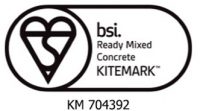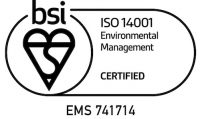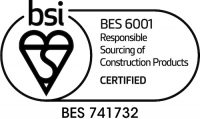Concrete can be both incredibly useful yet also misleading for those using it in their builds or other projects. Here, we explain a little more about the jargon surrounding concrete and what it all means.
Acoustic performance
In terms of acoustics, concrete lends itself to effective sound insulation by both walls and floors due to its inherent mass and damping qualities. Thanks to its effectiveness at damping out all manner and levels of noise, concrete rarely requires extra sound-proofing materials to work effectively, making it a cost effective choice.
Air tightness
Concrete is incredibly useful as a material for infilling gaps or joints in the fabric of a building through which air is escaping. By using concrete to fill these gaps, heat loss is reduced and insulation of the building as a whole can be improved.
Durability
Concrete is an extremely durable material, with the ability to resist the effects of time. Whether this be corrosive sea salts experienced by structures such as bridges, or buildings exposed to high levels of bad weather conditions, concrete is a wise choice for a variety of structures. In fact, concrete buildings very rarely get altered or demolished due to their weathered appearance and age damage; rather, they will only be altered or removed entirely from the landscape if they no longer have purpose.
Fire resistance
Concrete performs well in fire, proving extremely resistant to the issue of fire due to its nature as non-combustible. In fact, concrete is so effective at resisting fire that it can be used to minimise fire risks in constructions. Ensuring that the structural integrity of the building in question remains, even through instances of serious fire, the material is cost effective as it does not require additional fire protection to work.
Flood resilience
Concrete is not only fire resistant as discussed above, but also highly water resilient, making it effective in constructions built to be waterproof. This could include water barriers, bridges or other such constructs, and thanks to its low permeability these structures will not only be effective to begin with but also incredibly long-lasting.
Re-use
With more and more promotion of the possibility to reuse or refurbish existing structures, there is a strong argument for upgrading outdated buildings, giving them a new lease of life that is not solely cosmetic. Concrete structures, thanks to their robustness and flexibility, lend themselves to this concept of ‘recycling’ existing buildings for the better.
Thermal Mass
Thermal mass refers to the ability of a material to store heat effectively. Construction materials such as concrete have differing levels of ability when it comes to this property, and concrete itself can store a lot of heat due to being such a dense material.
Vibration control
On account of lighter, longer flooring becoming more and more common in recent years, floor vibration has proliferated; something which is not an issue for many structures, but for buildings in which the equipment or users are sensitive to incidences of floor vibration, it is important to keep it to a minimum. To improve and reduce vibration, the mass and stiffness of the floors in question must be increased; something which can comfortably be achieved using concrete.
Whole life costing
Taking account of the total cost of an item throughout its whole life, WLC for concrete demonstrates its cost-effectiveness thanks to the fact it requires no ongoing renewal, replacement or running costs except in the instance of serious damage.
Here at EasyMix Concrete, we are proud to provide high quality concrete to all our customers, as and when they need it. Supplying to a variety of projects, we really are experts in our field, making our service both convenient and exceedingly good value for money. For more information on any of our products or services, get in touch with our friendly team today. We’ll be happy to help, whatever the enquiry.



